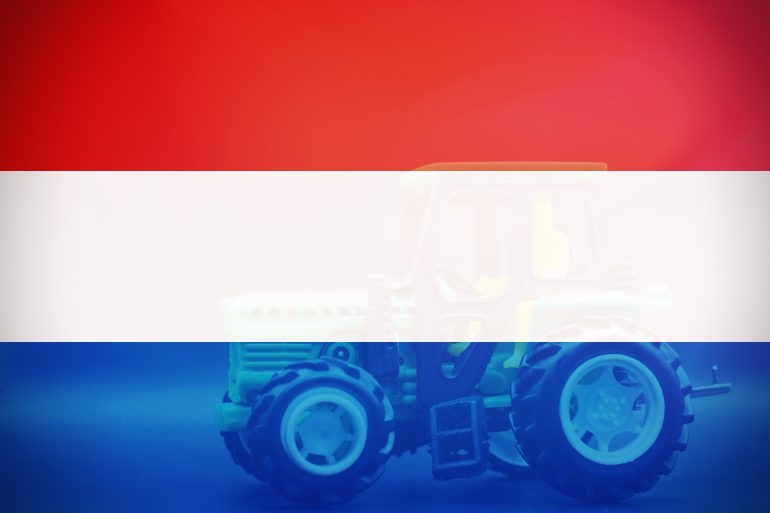As the Dutch government is still trying to figure out the optimal solutions to the nitrogen crisis, consultations with several farmers’ organizations have begun. So far the talks have unveiled a lack of trust in the authorities.
Nitrogen in animal manure and chemical fertilizers is necessary to grow crops. As explained by the United States Environmental Protection Agency, when not fully utilized by plants, it can be lost from farm fields and negatively impact the air and downstream water quality. The two main forms of reactive nitrogen are ammonia and nitrous oxide. The first one mainly comes from agriculture and causes soil acidification.
50% less nitrogen emissions by 2030
Despite being a small country, the Netherlands is Europe’s largest meat exporter and thus produces high amounts of nitrogen. In 2018 the European Court of Justice ruled that the Dutch government was failing to deal with the country’s high nitrogen emissions. In May 2019, the Council of State ruled that the government’s nitrogen strategy was insufficient in terms of EU directives. Since then, the Netherlands has been trying to work out new ways to address the crisis. The most recent nitrogen plan was unveiled on 10 June. The goal is to cut nitrogen emissions by 50% by 2030. In certain areas the reduction is supposed to reach 70%.
As Christianne van der Wal, the Minister for Nature and Nitrogen, anncounced, the exact ways of reaching these goals will be worked out in the coming months. One of the measures has already been put forward and remains controversial: farmers will have to cut the number of livestock by a third to reduce nitrogen pollution from animal waste. This has sparked mass farmers’ protests.
Remkes mediating the talks
In June 2022 the government sent two letters to the Lower House of Parliament (Tweede Kamer): the starting memorandum of the National Rural Area Programme and an initial perspective for agricultural entrepreneurs, which will be followed up in September 2022. The scope and impact of the task facing the government is outlined in these documents. Now the government wishes to continue working with the various parties involved about the implementation of these tasks. Senior statesman Johan Remkes was appointed to lead discussions with farmers on behalf of the government.
On 26 July Remkes sent a letter of invitation to a wide range of farmers’ organisations to enter into a dialogue with the government about the interpretation of the tasks for nature, nitrogen, climate, water and the future of Dutch agriculture, emphasizing that ‘there is room for all ideas to realize the challenges ahead’. He added: ‘I see the talks as a turning point: working together to break the deadlock. The government has assured me that there is room for flexibility and that joint solutions are possible,’ said Remkes. The talks take place under the leadership of Remkes, in confidentiality and in the presence of the Minister of Agriculture, Nature and Food Quality and/or the Minister for Nature and Nitrogen. Prime Minister Rutte will also be present at some of the meetings.
Talks began and will continue
The talks started on 5 August. Remkes was joined by eleven farmers’ organisations, LTO Netherlands being the largest interlocutor. However, the talks left the farmers highly disappointed. Some threatened with new demonstrations.
Sjaak van der Tak, leader of LTO, said that the first talks have yielded ‘too little at the moment”. In his view Rutte and the ministers involved ultimately did not offer enough. ‘The cabinet evidently needs more time to prepare,’ said Van der Tak, adding further conversation is necessary. ‘This is really a huge task for our families and our farms,’ he said, and emphasized that farmers expect the government to pick up the ball and run with it. In a statement published on 6 August, another organization called Farmers Defense Force claimed that Rutte ‘swept away the farmers’ handshake’ and that a lot needs to be done to restore trust.
Following the consultations, Remkes said that there is ‘a serious crisis of confidence’ in the authorities, not solely with regard to the nitrogen crisis. The next round of consultations will take place at the end of August.
Written by Zuzanna Kuffel
